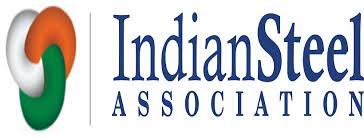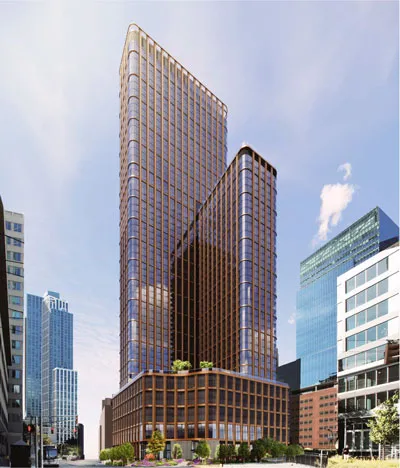The Production Linked Incentive (PLI) Scheme is a scheme aimed at encouraging
domestic manufacturing, substituting imports and finally boosting exports. In other
words, the PLI scheme over a period of five years aims to augment domestic
manufacturing and enhance export capabilities in the speciality steel sector. The PLI
scheme envisages achieving this by providing incentives to the identified steel
subsectors.
India’s steel production and trade has largely tended to concentrate on grades that are
in the lower rung of the value addition ladder. Even in years when India has been a net
exporter of steel, it has been in terms of quantity and not value. Analysis of India’s steel
trade basket shows that India exports more of hot rolled and cold rolled coils and
imports more of speciality steel grades such as high strength steel, electro galvanised
steel, heat-treated steel, asymmetrical rails, bearing steel, valve steel, etc. This anomaly
is not in sync with the fact that India is the world’s second largest producer as well as
consumer of steel, besides being among the top steel trading nations. The PLI Scheme
aims to correct this anomaly.
All specialty steels make up for a major share of India's import. In FY 2017-18, while
India was a net exporter of steel, alloy steel import was to the tune of 1.1 billion dollars. In fact, India has not been able to produce Cold Rolled Grain Oriented Electrical Steel
(CRGO steel) locally for years. Currently an estimated 20% of CRGO requirement enters
the country in the form of imported scrap CRGO discarded overseas and is used for
transformers in India.
The PLI scheme for the steel industry is envisaged to enable it to move up the value
chain and focus on increasing production as well as exports of specialty steel.
The Scheme in Brief:
In line with the Atmanirbhar Bharat initiative, the PLI Scheme was envisaged and was
first approved by the Union Cabinet on 11 November 2020 for 10 manufacturing
sectors. On 22 July 2021, the Union Cabinet approved the PLI scheme for specialty
steel.
There are five speciality steel categories selected for the PLI scheme:
Steel Rails - asymmetric rails and head hardened rails.
Coated Steel - galvalume, galvanneal, colour coated or plated and tin mill products
High Strength Steel - API grade, high tensile sheets or coils or plates, Auto Grade
Steel (AHSS), boiler quality, pressure vessels, abrasion and wear resistance
Alloy Steel Bars and Rods – tool and die steel, valve steel, bearing steel, automotive
powertrain steel and precipitation hardened stainless steel
Electrical Steel – CRGO and CRNO
The PLI Scheme provides:
Incentives worth Rs 6,322 cr over the next five years.
The scheme proposes to incentivise eligible manufacturers by paying between 4% to
15% incentive on incremental production.
However, the annual incentive payable is capped at Rs 200 cr per eligible company.
The PLI Scheme is expected to:
Attract investment to the tune of Rs 39,625 cr in the next five years in speciality steel
manufacturing.
Provide for an estimated employment opportunity to more than 5.25 lakh people,
directly and indirectly.
The PLI is also expected to result in capacity addition of around 25 million metric
tonne in the speciality steel segment.
The Eligibility criteria, broadly, are as follows:
Any company registered in India, engaged in manufacturing of the identified
‘specialty steel’ grades will be eligible to participate in the scheme.
However, the company has to ensure that the steel used for making ‘specialty steel’
is ‘melted and poured’ in the country, thereby ensuring end-to-end manufacturing
keeping in view the Prime Minister’s Atma Nirbhar Bharat’. Manufacturers engaged
in only part of the value chain will generally not be eligible under the scheme.
Joint ventures are also eligible in this scheme.
The list of permissible investments would include investments in R&D which is
capitalised, expenditure in transfer of technology, payments towards IPR, quality
control equipment, etc.
Performance Security of 0.5% of the committed investment shall have to be
submitted by the company.
Online applications under the scheme will have to be submitted calendar year wise,
before January 31, of the succeeding calendar year.
Applications of eligible applicants shall be scrutinised by the PLI Cell within the Ministry
of Steel and placed before the Empowered Committee (EC) for approval. The top 5
eligible manufacturers in each sub-category shall be selected on the basis of the
following minimum yearly incremental production or sales commitment:
Minimum investment commitment for that sub-category in five years
R and D expenditure as percentage of annual turnover
Commitment not to curtail production of alternative products from existing product
lines in order to enhance production of product(s) eligible under PLI scheme
Selected manufacturers under the PLI scheme shall have to enter into a MoU with
the Ministry of Steel.
Multiple MoUs for sub-categories can be entered into, but any failure to meet the
commitment shall result in recovery of the incentive paid.
Given its many positive features and the encouragement that it will provide to enable
the steel industry to move up the value chain, the PLI Scheme has been warmly
welcomed by the steel industry across the board.
The President of the Indian Steel Association and CEO, ArcelorMittal Nippon Steel
India, Dilip Oommen expressed warm appreciation for the launch of the Scheme: "We
applaud the Union Cabinet’s decision to approve the Production Linked Incentive (PLI)
scheme for specialty steel. The steel industry has demonstrated tremendous resilience
in these challenging times. This decision will go a long way in enabling growth, not just
for the steel sector, but overall infrastructure development. It will help bring the country
at par with the best in the industry globally. This milestone also reinforces the
Government’s vision of building and growing an 'Atma Nirbhar Bharat' and we are
confident that this move will truly provide further impetus to India's socio-economic
growth."
Bhaskar Chatterjee, Secretary General and Executive Head, Indian Steel Association
told, "We welcome the Union Cabinet’s decision to approve the Production Linked
Incentive (PLI) Scheme for specialty steel. This scheme will play a pivotal role in
enabling growth by promoting investments for the steel industry which historically has
contributed immensely towards nation-building, and continues to do so. We are
confident that this milestone will also strengthen Government’s vision of building a true
‘Atma Nirbhar Bharat’, which in turn will go a long way in accentuating India’s overall
economic growth."




















